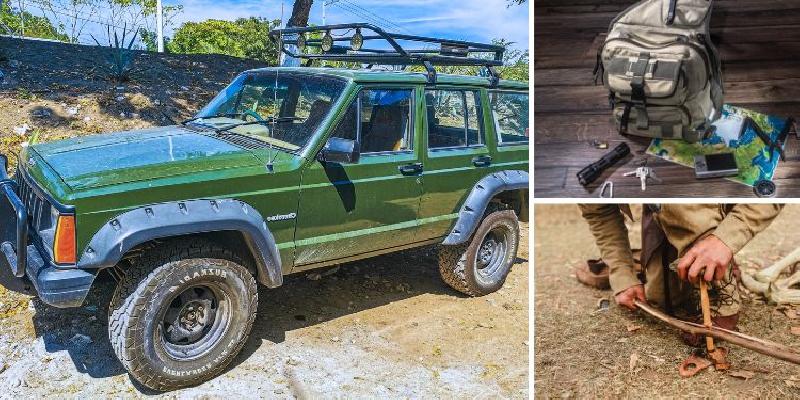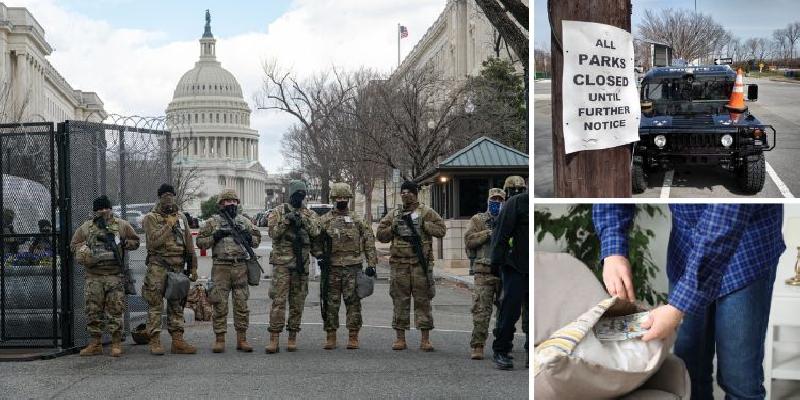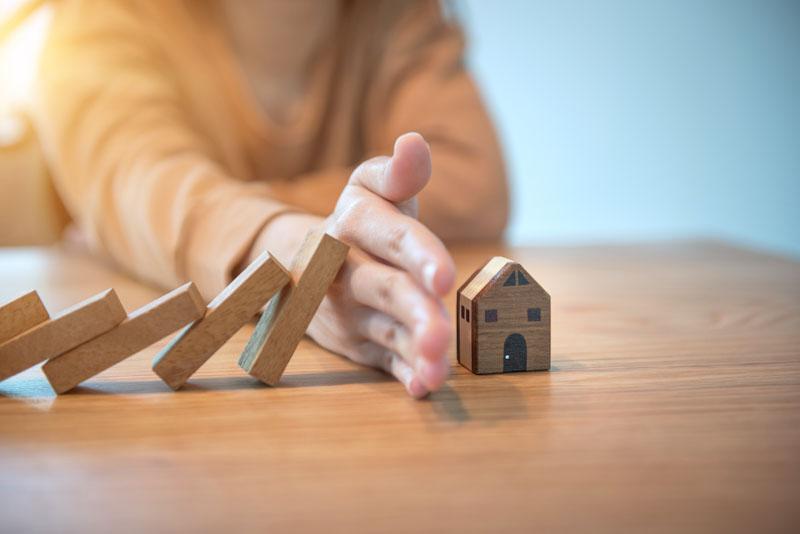We talk a lot about what to do to prepare and how to do it. The journey of being a prepper is a long and challenging one. In truth, prepping is a process, more than a destination. But is it possible to arrive at the end of that journey? Can you actually get to the point where you think you’re as prepared as you need to be? What should you do when you get to that point?
This idea that we’re all done prepping is actually something that is likely to happen to all of us, from time to time. It happens because we have a certain level of preparedness in mind, having set it as a goal. When we reach that point, we think we can sit back and relax, because we’re arrived. That doesn’t necessarily mean we have arrived; but we think that anyway. So, what should we do?
Reevaluate Your Risks
Risk assessment is an important part of the prepping process; determining what risks you face, how likely those risks are to occur and how serious the impact of those risks will be. Everything we do as preppers is about mitigating the impact of those risks, in order to protect our families.
But just because we’ve evaluated our risks once, doesn’t mean that we’re done forever. Risks can change. While the natural disasters which are likely to occur in your part of the country are unlikely to change in any significant way, other risks can. Eight years ago, there was a very real concern about North Korea attacking the US with an EMP. While that risk isn’t totally gone, it is not as great a risk as it was back then. Trump’s “bigger button” statement, in response to Kim Jong Un’s brag about the red button on his desk, seems to have taken a bit of the wind out of the latter’s sails.
At the same time, COVID has taught us all a lot about pandemics and the potential risk of biological warfare. While I have nothing to truly point to, other than a gut feeling, I expect that the next pandemic to hit the world will be even worse than that was.
Take a Fresh Look at Your Emergency Plans
I’m sure you have plans ready to implement, should a major disaster strike. But are those plans up to date? Things change in our lives, not just the risks we face. Maybe you’ve had a job change or maybe your children have grown and are driving now. How will those things impact the emergency plans you have? Is everything still good or do you need to rethink how you will react?
Those last minutes and hours before a disaster and after the disaster strikes are critical. Are you sure that your plans include everything you need to do in that time and who is going to do each task? That’s going to change as your family grows and your preparation improves. Older children become capable of helping perform various survival tasks, even if they are only simple ones. That help can improve your reaction to the emergency.
You might also want to reevaluate your plans for bugging out, specifically focusing on the criteria that will necessitate a bug out. As you grow and learn, you’ll discover different things that warrant a bug out, as well as discover things you had thought would necessitate one, but really don’t. Part of that will depend on what you have available to you as a survival shelter and how well-prepared that shelter is to receive your family and protect it from harm.
What About Your Bug Out Survival Shelter?
Speaking of bug-out survival shelters, how good is yours? In my experience, this is one of the later things that most preppers actually get around to doing. There is so much to do, just preparing our homes for a potential disaster, that few of us truly have a good survival shelter to bug out to.
We’d all love to have that proverbial cabin in the woods, but few of us can actually afford it. Or, at least, we can’t afford it when we start out. But what about 10 years down the road? What about 20? Things change in all our lives and one of those tends to be that as we grow older, the combination of higher income and having already made many of the big purchases in our lives, tends to leave us with more disposable income. What better use of that, than to buy that cabin? Not only will it serve as a survival shelter; but it can be a nice weekend getaway too.
If you already have someplace you can use as a survival retreat (not necessarily that cabin), do you have it stocked with the survival gear and supplies you’ll need? Do you have a secure source of water? Have you scouted the area for fishing and game? What about being prepared to start a survival garden and grow your own food? Are there any neighbors who might pose a risk? Just how well do you know that you can survive there?
Can You Do Anything Better?
No matter what you’re doing; you can always do it better. Back in my engineering days, I loved to hear someone say, “That’s the way we’ve always done it.” That simple sentence told me that nobody had bothered to look and see if there was a better way. Times change; and as they do, new equipment and new methods come to light. That’s just as true in the field of survival, as it is in business and industry.
Take something simple, like a bug out bag. Okay, they’re really not all that simple; but stick with me. I’ve had a bug out bag, in one form or another, for a good 50 years. But I don’t have the same bug out bag I had 50 years ago. For that matter, I don’t have the same bug out bag that I had 10 years ago… at least not totally the same. I find new gear that’s better than the old and make the necessary changes.
There are always new ideas cropping up in the prepping and survival community, whether those are new pieces of survival gear, new ideas about survival techniques, or new foods that we should add to our stockpile. Whatever it is, we need to evaluate whether it truly is better than what we’re already doing, and then make any changes that are warranted.
Let me be clear on this; new isn’t always better. I’ve seen a lot of “new” survival gear that was nothing more than gimmicks. The most “survival” that it was going to do was helping whoever is selling it to pay their bills. That’s fine; but I don’t need to buy it. On the other hand, some truly new gear is excellent and worth investing in. Those are the ones we need to seek out and decide if they are worth adding to our survival kits and bug out bags.
Pick a New Skill to Learn
But as we all know; survival isn’t just about the gear we have; it’s more about the skills we know. A skilled survivalist can make do with much less gear, either making things themselves or finding ways to get by without using some things.
But there’s more to this thing of learning skills, than just learning the basics of how to survive. Many preppers get into gardening or out-and-out homesteading, giving up their old life for a simpler, more self-sufficient one. Others have gone off-grid, in their efforts to gain self-sufficiency. Maybe that’s not for you; but you should at least look at the idea, before throwing it out.
The skills I’m most interested in seeing preppers learn though, are those which will help us rebuild some sort of society, post-disaster. Most of us believe that a TEOTWAWKI event is bound to happen, so that’s what we prepare for. But what about after that? Are we going to be content to leave our children living n a world where it’s all they can do to survive?
Many say that if the grid goes down, we’ll be living in the 1800s again. That’s not really true; because the people living in the 1800s had the skills and tools to survive in their world. We don’t have those tools and few have those skills today. But if society is going to survive, if our children and grandchildren are going to survive as something other than a reenactment of the cavemen, we’ll need the skills to rebuild that 1800s society. That means knowing things like blacksmithing, tanning hides, weaving fabric and a host of other “lost” skills.
This is someplace where we, as prepares, especially experienced preppers who are largely prepared, can make a huge difference. In learning these skills, we will have something valuable and marketable in a post-disaster world. Our ability to make practical things, which will help others do more than just barely survive, will become the basis of a reborn society; hopefully, one that is better than the society we live in today.
via survivopedia




